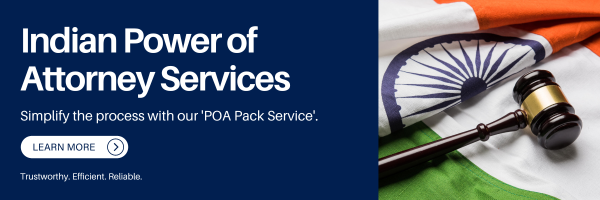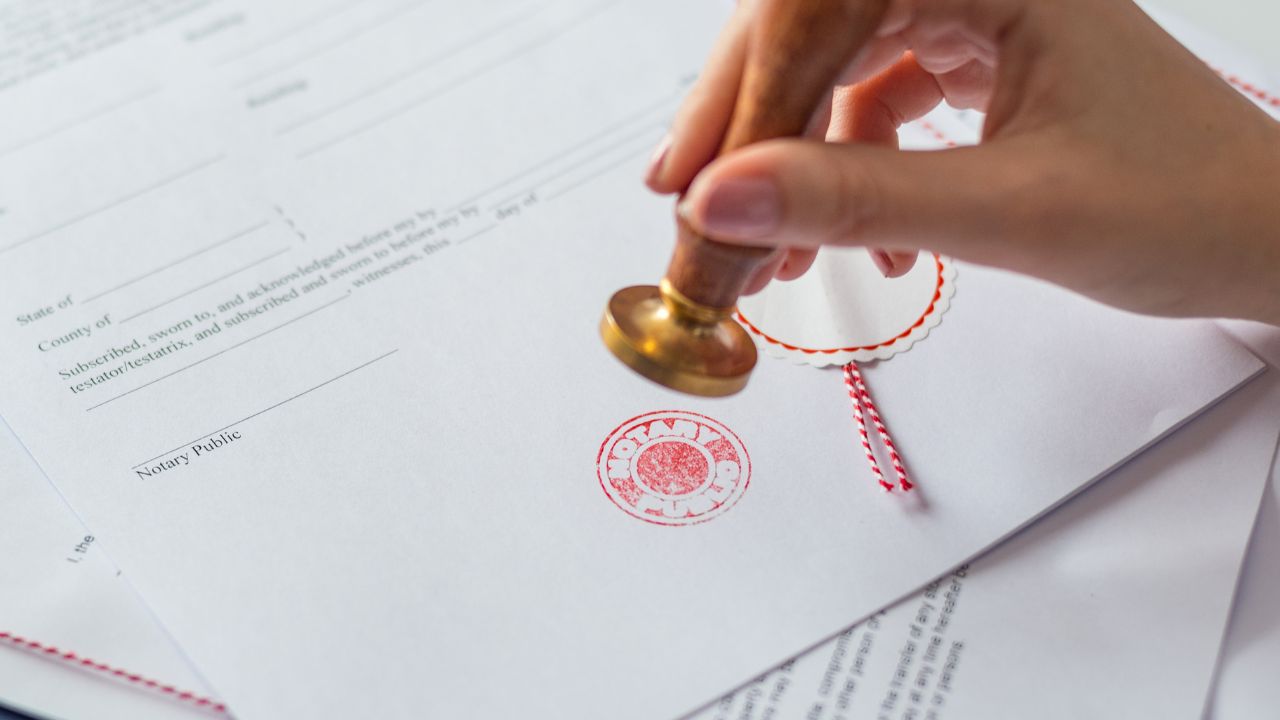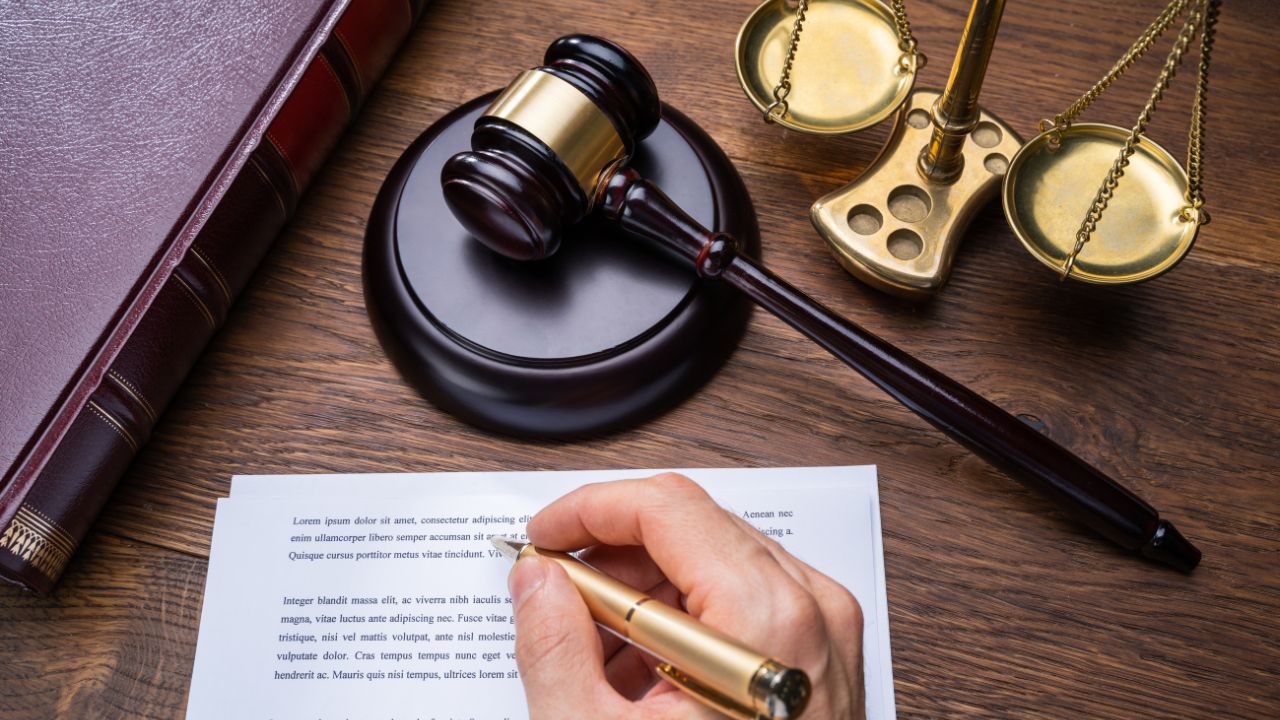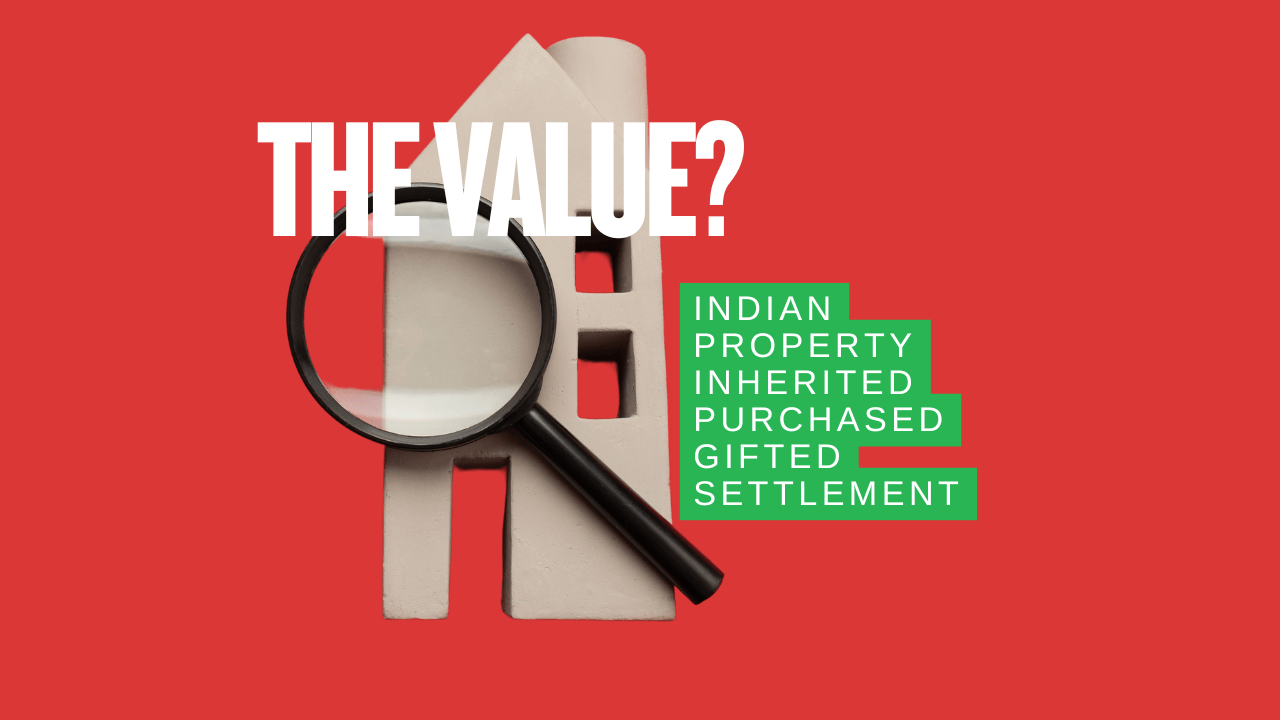As life becomes more dynamic and globally connected, it is not uncommon for individuals to handle important legal, financial, and personal matters remotely, especially for non-resident Indians (NRIs) or individuals with interests in India. One of the key legal tools that allows this level of remote management is the Power of Attorney (POA)
However, selecting the right attorney for your Indian Power of Attorney can be challenging. Whether the attorney is a family member, close friend, or professional lawyer, making the right choice is crucial to ensuring your affairs are managed appropriately.
This guide helps you understand the considerations when choosing an attorney, whether it’s a relative, a family friend, or a legal professional, and how the tasks required under the Power of Attorney will influence your decision.
What Is a Power of Attorney?
A Power of Attorney is a legal document that allows one person (the principal) to appoint another (the attorney or agent) to act on their behalf. In India, POAs are commonly used when the principal is unable to be physically present to handle their legal or financial matters.
There are different types of Power of Attorney, and each type confers a different scope of responsibility on the attorney:
- General Power of Attorney (GPA): This allows the attorney to handle broad matters such as property management, financial transactions, and legal representation.
- Special Power of Attorney (SPA): This grants the attorney authority to act on behalf of the principal in specific tasks, like selling a particular property.
Whether a GPA or a SPA, sending a power of attorney to India involves correctly validating the document to ensure it is legally valid and fit for the intended tasks.

Why Is the Choice of Attorney Important?
Choosing the right attorney is important because the POA can give significant control over key aspects of your life, whether it’s managing property, operating a business, or conducting financial transactions. Depending on the nature of the tasks involved, your attorney could be a family member, friend, or lawyer. The decision should be based on the attorney’s ability to manage the responsibilities effectively and in your best interest.
Key Factors to Consider When Choosing an Attorney for Your Indian Power of Attorney
1. Nature of the Relationship with the Attorney
One of the most significant decisions is whether to appoint a family member, close friend, or a professional attorney. Each option comes with its advantages and potential challenges:
- Family Members: Family members may have a deeper understanding of your personal preferences, values, and interests. They can be a good choice if the tasks under the POA involve personal or family-related matters, such as managing family property or handling banking transactions. However, appointing a family member could sometimes blur the lines between personal and professional duties, leading to potential conflicts of interest or misunderstandings.
- Friends or Family Friends: Close friends or family friends can offer the same personal understanding as a family member, while providing a bit more objectivity. If you trust them and they have a good understanding of your situation, they may be well-suited for tasks that require discretion and loyalty. Just as with family members, the challenge with friends can be maintaining a formal relationship when it comes to serious legal or financial tasks.
- Professional Lawyers: For complex legal or financial matters, especially when dealing with significant property transactions or business interests, a professional lawyer may be an ideal choice. Lawyers are bound by professional codes of conduct and offer expertise that ensures compliance with Indian legal requirements. If the POA involves high-stakes transactions or specialized knowledge (such as dealing with a court case), a lawyer’s services might be invaluable. The downside is that lawyers may not have the same personal knowledge of your specific wishes and may charge fees for their services.
2. Trustworthiness
No matter who you appoint—whether it’s a family member, friend, or lawyer—trustworthiness is key. The person you appoint as your attorney will have significant authority to act on your behalf, so you must be confident they will act in your best interest.
- Family and Friends: With family members or friends, you might have an inherent trust based on your relationship. However, it is still essential to ensure they are reliable and capable of carrying out their duties, especially when it comes to sensitive matters like property transactions or managing finances.
- Professional Lawyers: A lawyer is obligated to act in the best interest of their client, but you should still verify their reputation and professional history. Check for any conflicts of interest that could arise.
3. Capability to Perform Specific Tasks
The attorney’s ability to handle the specific tasks required by the POA should guide your decision. Depending on whether you need them to manage property, run a business, or simply handle routine administrative matters, different types of attorneys might be more suitable:
- Property Management: If the POA is for managing or selling property in India, it may be beneficial to appoint someone familiar with real estate transactions, property laws, and local regulations. A family member with experience in property matters or a lawyer specializing in real estate law could be a strong choice.
- Business Management: If the POA pertains to running a business, you’ll want an attorney with a deep understanding of the business and the ability to make strategic decisions. A professional lawyer or business partner might be more appropriate than a family member or friend for this task.
- Routine Transactions: For day-to-day administrative tasks, a close relative or trusted friend may be more convenient and cost-effective than hiring a lawyer, provided they have a clear understanding of your needs.
4. Legal Expertise
Legal expertise is particularly important if the POA involves complex legal transactions, such as managing legal disputes.
- Professional Lawyers: Lawyers bring formal legal expertise to complex transactions ensuring that the process is as efficient as possible.
- Family or Friends with Legal Backgrounds: If a relative or friend has legal training or experience, they might be well-suited for tasks requiring legal knowledge, while still offering a personal connection of trust and reliability.
5. Geographic Location
The attorney’s physical location matters if they need to be present in India to execute certain actions. For example, a POA that involves selling a property might require the attorney to visit the local registrar’s office or deal with local authorities. If the person you appoint resides outside India, they may face practical difficulties in carrying out these tasks. If you have family or friends in India, they may be more accessible for carrying out specific legal tasks or handling urgent matters.
6. Clear Communication and Accountability
Whether you choose a family member, friend, or lawyer, communication is critical. Ensure that the person you appoint as your attorney is open to regular communication, provides timely updates, and is accountable for their actions.
- Written Agreements: Even with family or friends, it’s advisable to set out clear terms of engagement, usually drafted into a POA.
- Professional Accountability: A lawyer’s professional obligations include maintaining clear records and following client instructions closely, which ensures accountability. If you choose a lawyer, they are also bound by their professional code of ethics to act in your best interests.
Selecting an attorney for your Indian Power of Attorney is a deeply personal decision that requires a balance between trust, capability, and expertise. Whether you choose a family member, close friend, or professional lawyer, the decision should align with the specific tasks you need to be handled and your level of comfort with the individual’s ability to act on your behalf.
Ultimately, the right attorney is someone who combines trustworthiness and reliability with the practical skills necessary to manage your affairs. Whether this is a family member familiar with your personal wishes, a trusted friend who understands your circumstances, or a lawyer with legal expertise, careful consideration will ensure your Power of Attorney serves your interests effectively.
How we can help
For assistance with your Indian Power of Attorney document, contact our experienced professionals on +44 208 757 5751 or use our contact form.






